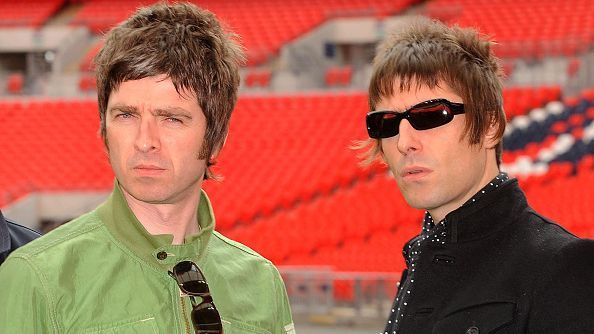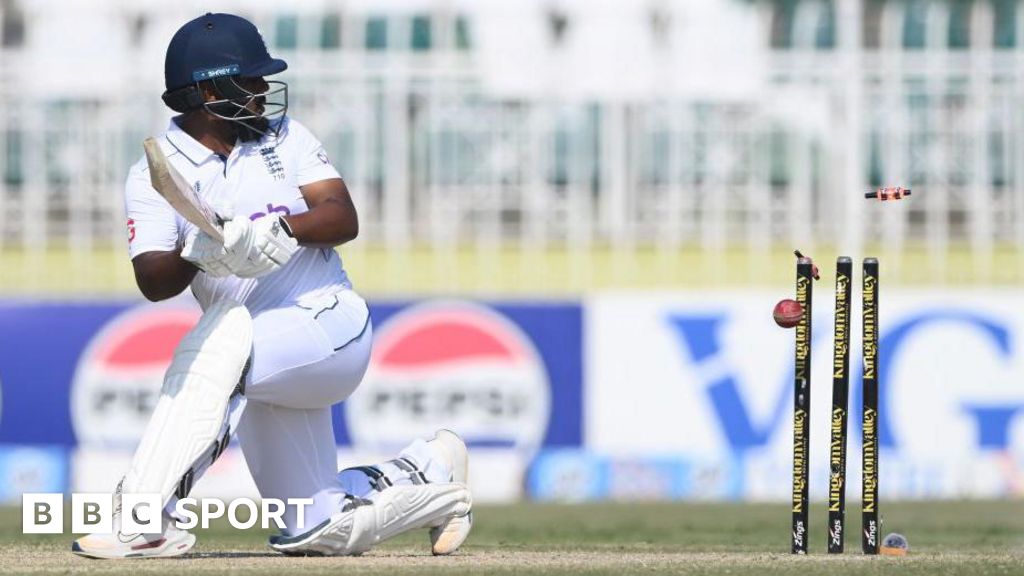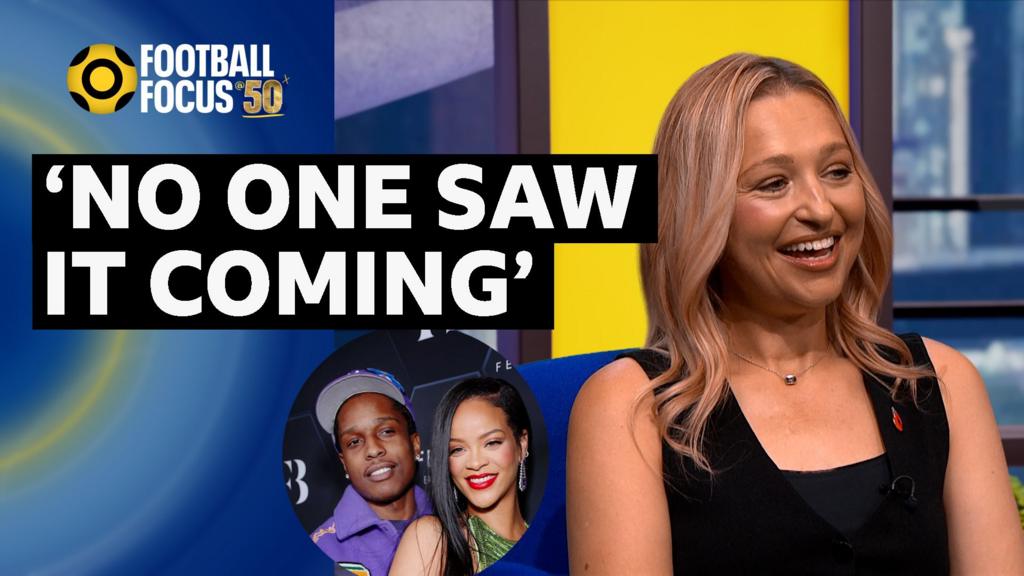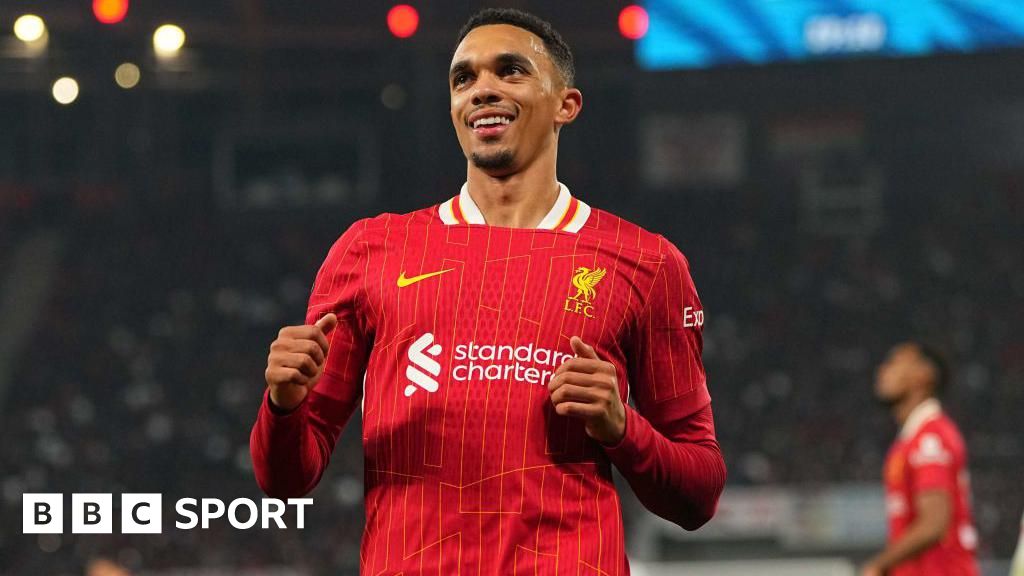ARTICLE AD BOX
 Image source, Getty Images
Image source, Getty Images
The Gallagher brothers have ended their feud to announce new tour dates in 2025
Ciaran Varley
BBC Sport Journalist
It was the worst-kept secret around. On Tuesday morning, Liam and Noel Gallagher announced Oasis were reforming to play a series of dates across the UK and Ireland next year - 15 years after their split.
But what does the reunion mean for fans of their home city's two biggest football clubs?
Liam and Noel have famously found plenty to disagree about over the years, but one thing they have in common is their love for Manchester City.
The boys from Burnage were in their pomp during the mid-90s, playing to 250,000 people over two nights at Knebworth in 1996. Their swagger became synonymous with the whole city.
But their football team - and cross-city rivals United - were on very different trajectories at the time.
While Sir Alex Ferguson was building a dynasty at Old Trafford - delivering 13 Premier League trophies between 1993 and 2013 - City's fortunes were rather more mixed.
In 1998 - following the release of Oasis' third album, Be Here Now - the Blues were in the third tier of English football.
The band split in August 2009 - a year after City's takeover by the Abu Dhabi United Group.
Fifteen years on, City have won the Champions League, eight Premier League titles, three FA Cups and six League Cups. United, meanwhile, have not won the league since Ferguson retired in 2013.
'Britain was at the centre of global sport, music and fashion at the SAME time'
There was, naturally, plenty of social media reaction to the Oasis announcement.
Former Manchester United midfielder David Beckham posted a picture of the Gallaghers on his Instagram with the caption: "No words needed."
On X, former Liverpool player Stan Collymore said Oasis were "part of what reinvented British cool" in the 90s and the reunion evoked memories of a time "Britain was at the centre of global sport, music and fashion at the SAME time."
Image source, Getty Images
Image caption,Noel Gallagher is a regular at the Etihad Stadium
What do Oasis mean to City and United fans?
Nigel Rothband - host of the Man City Show podcast:
"From a City point of view, it's a big deal - Wonderwall is played at the Etihad. Do Manchester United fans hate Oasis? I'm not sure if that's true. Do we hate The Stone Roses? I’m not sure it's that strong. But is there a natural connection between Oasis and City fans? Yes.
"Noel, in particular, is a proper fan. He has a real affinity with City fans and a real connection. You go to his concerts and he will have City memorabilia on stage."
Gaz Drinkwater - Manchester United reporter for BBC Radio Manchester:
"There's a bit of football banter, but one of the few things in this city that actually does feel potentially bigger than football is bands like Oasis and The Stone Roses. I don't think anyone will be too concerned about where their allegiances are by the time these gigs come around.
"City have gone through this massive change since Oasis broke up. Maybe things will be different for the younger fans, but I just think it's all about the music with Oasis.
"(What's the Story) Morning Glory? was released the year I was born. My dad was massively into them and got me into them. I think I actually walked into my barber's with a picture of Noel Gallagher at one point and said: 'Can you make it look like this?' I started learning guitar because of Oasis and set up a little band. We were absolutely useless, but that was all because of Oasis."
'It's a very, very special day to be a Manc'
Oasis have inspired generations of Mancs to wear their hair, and their parkas, with a certain panache.
Reacting to the news of the reunion, self-confessed superfan Scarlett Thornton said: "I woke up and screamed. To hear their songs live would be mint."
Shaun Edmonson said he was "proper buzzing", and planned to try and get tickets for all four of the band's shows in Heaton Park.
Oasis and Manchester City - a timeline
August 1994: Oasis' first album, Definitely Maybe, is released. Manchester United have just won their second Premier League title. City, meanwhile, have finished 16th under manager Brian Horton.
October 1995: Oasis release (What's The Story) Morning Glory? City are relegated at the end of the season, as United win their third Premier League title.
August 1996: Oasis play two iconic at Knebworth to 250,000 fans. Two and a half million people applied for tickets.
August 1997: Oasis release their third album, Be Here Now, which receives less-than-favourable reviews. Noel Gallagher attends an event at 10 Downing Street with Prime Minister Tony Blair. City finish 14th in the second tier. They were relegated again at the end of the 1997-98 season.
May 2000: Soon after Robbie Williams challenges Liam Gallagher to a boxing match during the Brit Awards, City are promoted back to the the top flight. The two events are not linked. City were relegated again in 2000-01, then promoted the following year.
June 2007: Thailand's former Prime Minister Thaksin Shinawatra completes an £81.6m takeover of City. The Blues finish the 2007-08 season ninth in the Premier League.
September 2008: City are taken over by Sheikh Mansour of the Abu Dhabi United Group. Robinho joins from Real Madrid for £32.5m - making him Britain's most expensive footballer.
October 2008: Oasis release their final studio album - Dig Out Your Soul.
July 2009: Former United striker Carlos Tevez joins City for £25.5m. A blue billboard is erected in the city with the slogan 'Welcome to Manchester'.
Aug 2009: Oasis split after a backstage fight at a concert in Paris.
Aug 2024: Oasis announce their reunion. City, meanwhile, are going for their fifth consecutive Premier League title under manager Pep Guardiola.

 1 month ago
9
1 month ago
9








 English (US)
English (US)